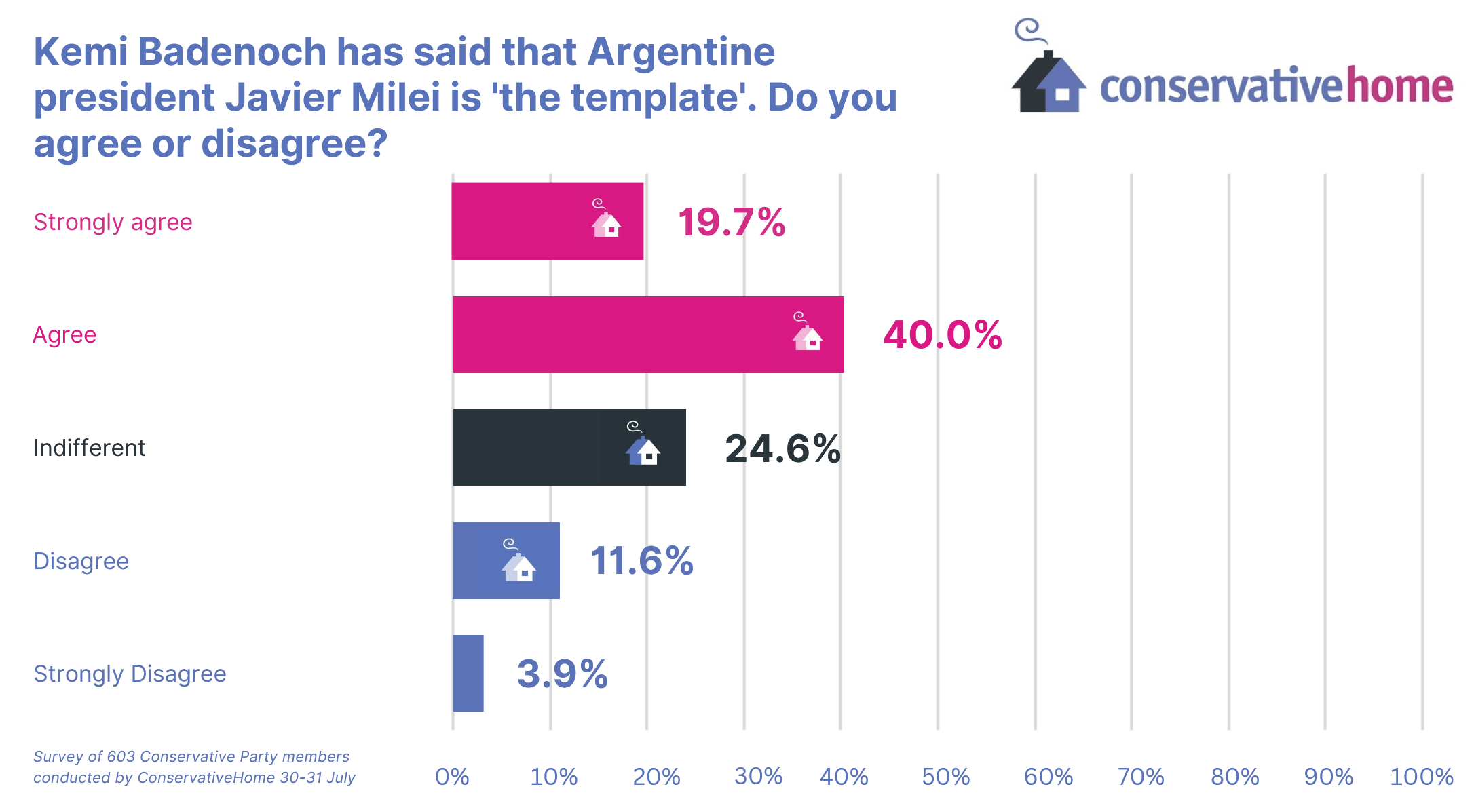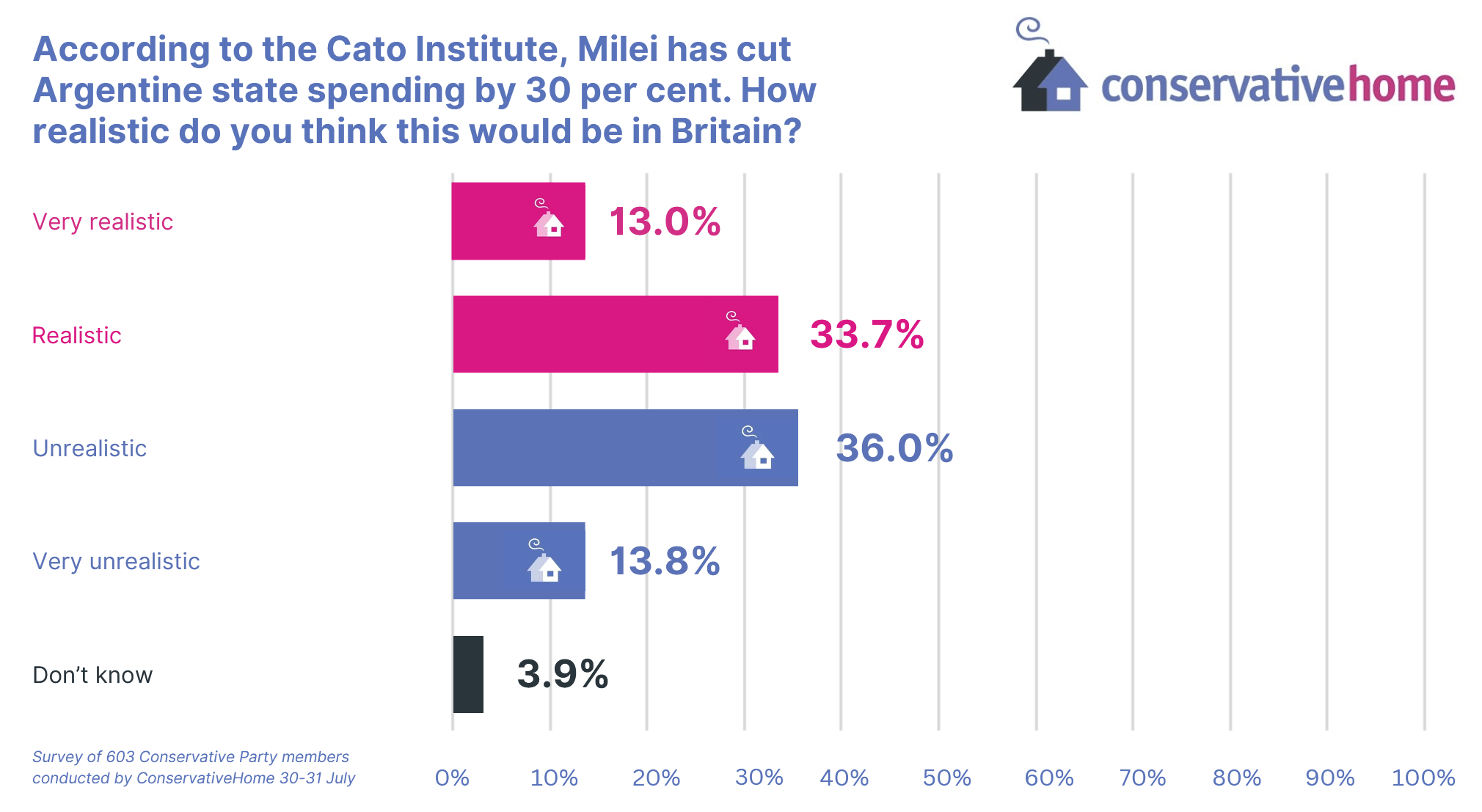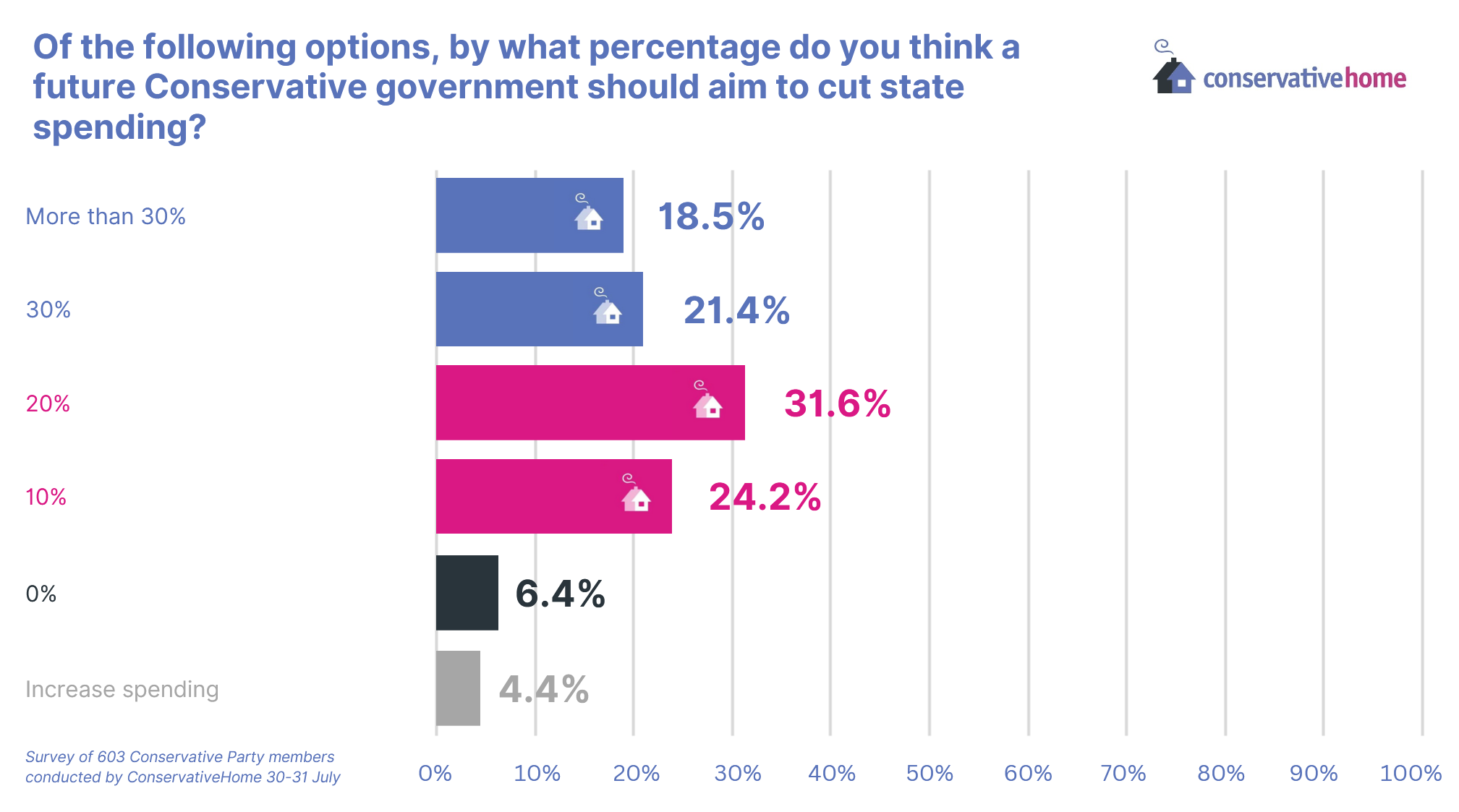Last month, I wrote about the Kemi Badenoch’s claim that Javier Milei, the state-slashing libertarian president of Argentina, was “the template” for her planned Conservative revival, and noted the incongruity of that statement with her staunch opposition to cutting the Winter Fuel Allowance.
That isn’t a dig at the current leadership in particular – such thinking appears to be more or less endemic in the Party at this point. More homes yes, but not here. More prisons? Yes! But…
However, it isn’t really a new phenomenon either. It was after all Anthony Eden who noted mordantly that “Everyone is always in favour of general economy and particular expenditure”, and that hasn’t got any less true since Suez. In our own day, many leading Conservatives fought the last election on an apparently sincere pitch as tax cutters, undeterred by the fact this claim bore no relation whatsoever to their record.
So this month, we thought we’d ask our survey panel what they thought of Badenoch’s admiration for Milei, and dig a little into how far they might actually support such an agenda.

Well, we’re off to a good (and not very surprising) start. Some six in ten Tory members agree or strongly agree with adopting the chainsaw-wielding template, whilst barely one quarter as many disagree with it (and only four percent ‘strongly disagree’).
The quarter of members who report themselves ‘Indifferent’ to the idea is a little surprising. Milei is, as we’re about to see, not an un-radical template to which to commit:

This question might be worth re-running at some point alongside some examples of the truly mind-boggling scale of cuts a 30 per cent reduction in state spending would amount to. Nonetheless, when presented with the proposition at face value we find just shy of half our panellists (47 per cent) believe, to varying degrees, that it would be realistic for a British government to adopt and effect such a programme.
We are seeing a shift now, with the panel much more evenly split and leaning against: just shy of half our members think it would be unrealistic. (Again, that very balanced split seems surprisingly optimistic – one might have expected ‘very unrealistic’ to make more of the running.)
So, what scale of cuts do our panel think would be desirable and deliverable?

One wonders whether the plurality choosing 20 per cent reflects a middle-option bias. Nonetheless, the figures show an overwhelming supermajority for effecting cuts on a significant scale, albeit with more than half the panel supporting the two sub-Milei spending reduction targets. Also note that a larger share of members support attempting to hit some unspecified super-Milei reduction target of more than 30 per cent than thought even 30 per cent was ‘very realistic’.
Finally, our panel had the chance to tell us which one area they would, if they could spare cuts, with the following results:
- Defence: 52.9%
- Welfare: 9.6%
- Pensions: 7.7%
- NHS: 5.19%
- Education: 3.7%
- Art & Culture: 3.7%
- Social Care: 2.85%
- SEND: 2.35%
- None of the Above: 12%
We shall return to this in future and ask them to tell us all the areas of government – that will allow us to draw up some rough ideas of what a ten, twenty, or thirty per cent cut in overall government spending looks like when it falls on the remainder.
But if this ordering bears any relation to the broader distribution of preferences, we can already see the outline of the problem. The three biggest runaway revenue expenditures hollowing out the British state – and demanding more and yet more tax rises – are the NHS, social care, and pensions, and two of those are third and fourth on the list.
Two results are perhaps surprising: welfare being so high (working-age welfare is so obviously the easiest thing to cut that even this Labour Government tried it) and social care being so low. Perhaps are panel are holdouts for the Dementia Tax? We’ll have to ask them sometime.





![Gavin Newsom Threatens to 'Punch These Sons of B*thces in the Mouth' [WATCH]](https://www.right2024.com/wp-content/uploads/2025/08/Gavin-Newsom-Threatens-to-Punch-These-Sons-of-Bthces-in-350x250.jpg)
![ICE Arrests Illegal Alien Influencer During Her Livestream in Los Angeles: ‘You Bet We Did’ [WATCH]](https://www.right2024.com/wp-content/uploads/2025/08/ICE-Arrests-Illegal-Alien-Influencer-During-Her-Livestream-in-Los-350x250.jpg)








